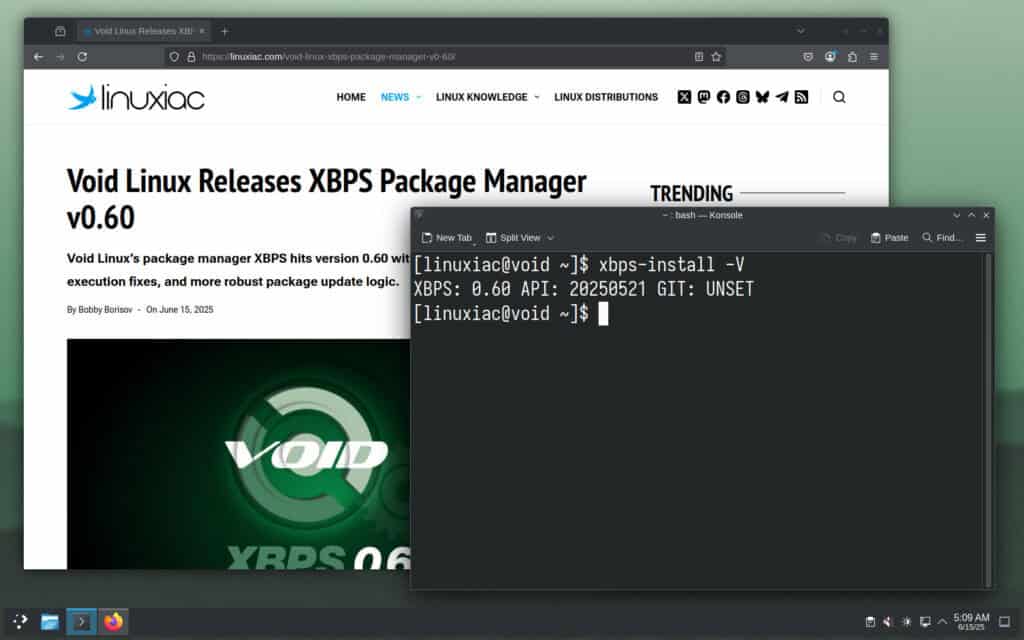Void’s latest version of its X Binary Package System (XBPS) package manager (which is more like a collection of individual tools brought together under the shared umbrella of XBPS), version 0.60, has just arrived, bringing a host of stability fixes, performance optimizations, and usability enhancements.
One of the standout improvements is the resolution of several critical bugs in the libxbps library. Among them, the update process for packages in an “unpacked” state has been fixed, preventing potential inconsistencies. Additionally, scripts now execute at the correct stages—before and after unpacking—ensuring operations don’t run in a partially unpacked state.
Moreover, XBPS 0.60 squashes multiple memory and file descriptor leaks that previously affected system performance. Enhancements in configuration parsing also mean that users will no longer encounter problems due to missing trailing newlines or unnecessary trailing spaces.

Dependency handling has also become more predictable and consistent. A crucial fix now prevents inconsistent dependency resolutions by properly handling dependencies marked as “held.” Should such a dependency disrupt the installation or upgrade process, XBPS gracefully exits with a clear indication of the issue.
Performance enthusiasts will appreciate optimizations, particularly the resolution of slowdowns due to the growing number of virtual packages within the Void Linux repository. Additionally, directly merging staging data into the main repository index streamlines the fetching process.
Command-line improvements are also in place. Tools like xbps-install, xbps-remove, and xbps-query now have better argument handling and clearer outputs, facilitating smoother package operations. Specifically, xbps-install users benefit from consistent, machine-parsable dry-run outputs, and clearer summaries presented before transaction execution.
Lastly, for advanced usage, XBPS introduces the --staging flag and the XBPS_STAGING environment variable, allowing users to test packages from staging repositories easily. Additionally, enhancements to xbps-alternatives offer improved visibility into available package alternatives directly from repositories.
For more information, see the announcement.
